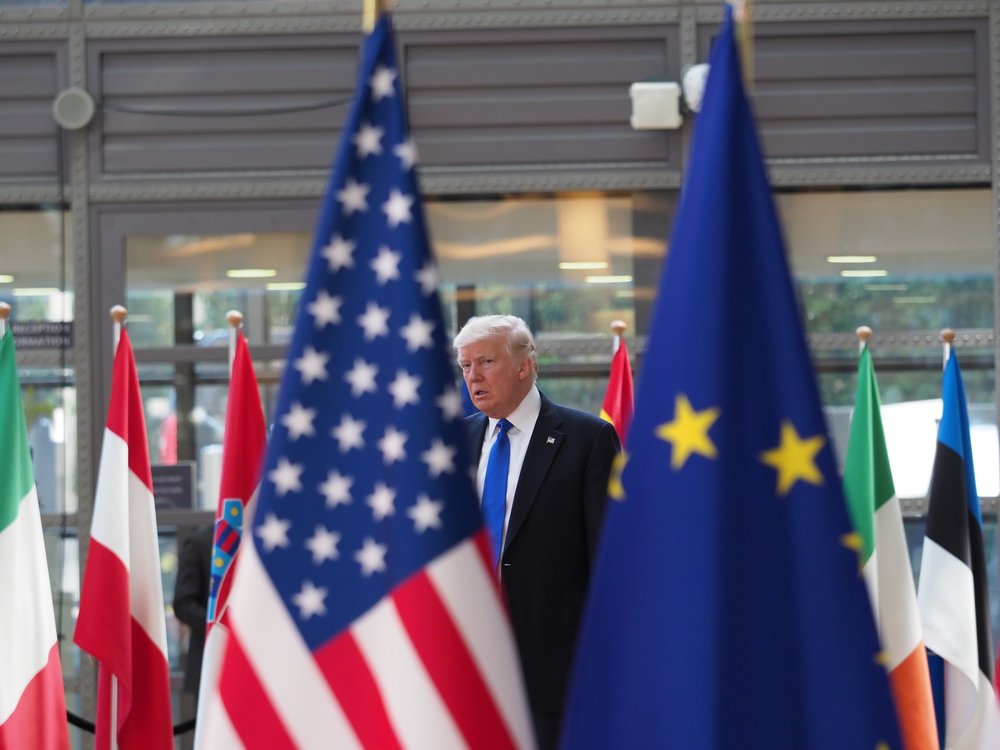Germany: 'World will change' if Trump ditches Iran nuclear deal

TEHRAN – High-ranking European officials have cautioned against President Donald Trump’s vows to decertify Iran’s compliance with the nuclear agreement this week.
The strongest warning was made by the German Foreign Minister Sigmar Gabriel who on Monday said "the world will change" in Trump kills the international agreement.
Trump is a stern critic of the nuclear deal, known as the Joint Comprehensive Plan of Action (JCPOA), agreed in 2015 between Iran and six world powers, including the United States, France, Britain, China, Russia, and Germany. Under the agreement, nuclear-related sanctions put in place against Iran were lifted in exchange for curbs on Tehran's nuclear program.
It is time to “invest in international cooperation” and “open new channels and not destroy the ones we already have,” EU's Mogherin notes.
The European Union’s foreign policy chief Federica Mogherini on Monday said, “We will continue to make sure that the deal with Iran is fully implemented by all sides.”
She said Iran's compliance with the accord had been verified on at least eight separate occasions.
Decertifying the deal will open the way for Congress to possibly authorize more restrictive measures against Iran.
Congress requires the president to certify Iranian compliance with the deal every 90 days. The next certification date is October 15.
Under the law, Congress would then have 60 days to decide whether to reimpose sanctions lifted under the deal.
Since the historic deal went into effect, the International Atomic Energy Agency has repeatedly confirmed the Islamic Republic’s compliance with its commitments under the JCPOA.
It is time to “invest in international cooperation” and “open new channels and not destroy the ones we already have,” Mogherini said in her Monday statements.
It is “certainly not the time to dismantle them,” Mogherini asserted.
‘Great concern’
The German Foreign Minister Sigmar Gabriel warned that "the world will change" if Trump decides to ditch the landmark nuclear accord.
“That is a great danger for us because if the United States of America takes that course then the world will change,” Gabriel said.
During his speech at the UN General Assembly on September 19, the U.S. president described the JCPOA as “the worst and most one-sided transaction Washington has ever entered into,” a characterization he often used during his presidential campaign.
The German FM says the Trump administration is seeking to replace “the rule of law with the law of the strongest”.
The German foreign minister said that he was deeply concerned about Trump’s possible decision to quit the JCPOA,
“We are looking with great concern towards the United States,” Gabriel told reporters in Berlin.
He added that treating Iran as if it was developing nuclear weapons would result in “nothing” good.
He slammed the U.S. administration for efforts to replace “the rule of law with the law of the strongest,” expressing his country’s resolve to remain committed to the historic deal.
“We are worried, based on the signals coming out of the United States, that the president will tell lawmakers that the nuclear deal with Iran is not being fulfilled,” Gabriel said. “This runs counter to the view of all the European countries that participated in the deal as well as the EU.”
'Negative consequences' if Trump quits Iran deal: Kremlin
Also, Kremlin spokesman Dmitry Peskov said a possible U.S. withdrawal from the 2015 nuclear deal would have negative consequences.
“President Putin has repeatedly spoken about the importance of the agreement on the so-called Iranian nuclear dossier,” Peskov told reporters.
Also on Monday, the UN atomic agency chief reaffirmed Iran’s commitment to the nuclear deal.
“I can state that the nuclear-related commitments undertaken by Iran under the (nuclear agreement) are being implemented,” Yukiya Amano said during a conference in Rome.
Amano later the day met with Iran’s nuclear chief Ali Akbar Salehi in Rome, where he said what matters to the IAEA is their objective observations, not the political atmosphere.
SP/PA
Leave a Comment